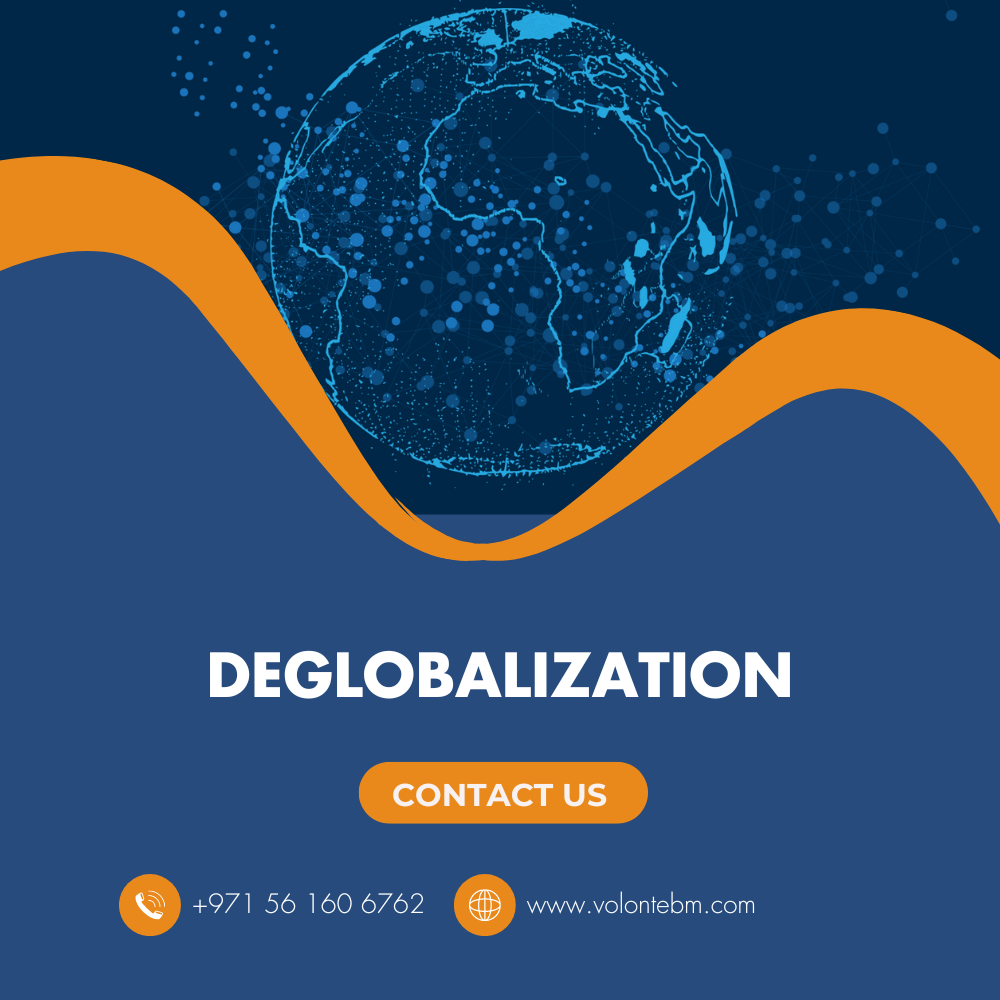Fall in Reference Interest Rates in 2024

We are witnessing a significant shift in financial landscape with a notable decrease in reference interest rates promised by Federal Reserve by the second half of 2024. This change is poised to have far-reaching impacts on various sectors including housing, consumer lending, and business investments. What does this mean? For homeowners and buyers: lower mortgage rates can translate to more affordable housing payments, making home ownership more accessinle. For consumers: reduced rates on personal loans and credit cards could lead to increased consumer spending, stimulating economic growth. For businesses: lower borrowing costs can encourage businesses to invest in expansions and innovation, potentially leading to job creation and economic development. Opportunities Ahead: Refinancing: now is an excellent time for homeowners to consider refinancing their existing mortgages to take advantage of the lower rates. Investments: businesses can capitalize on lower interest costs to fund their projects or expand operations. Savings: consumers should explore opportunities to reduce debt and manage finances more effectively with lower interest rates. As we navigate these changes, it is crucial to stay informed and strategically plan to maximize the benefits of this economic shift. The drop in reference interest rates in 2024 is a reminder of the dynamic nature of our financial environment and the importance of adaptability.
Global Economic Uncertainty in 2024: A Key Trend

As we navigate through 2024, global economic uncertainty remains a significant trend influencing markets, businesses, and policymaking worldwide. This uncertainty stems from a complex interplay of factors, ranging from geopolitical tensions to climate change impacts. Here are the key drivers and potential implications of this trend. Key Drivers of Economic Uncertainty Geopolitical tensions: ongoing rivalries between major powers (US and China), continue to create volatility in global markets. Trade disputes, sanctions, and strategic competition add layers of unpredictability to international economic relations. Inflation and Monetary Policies: persistent inflationary pressure have led central bans to adjust monetary policies, including interest rate hikes. These measure, while aimed at controlling inflation, contribute to market instability and economic unpredictability. Energy Market Volatility: fluctuations in energy prices, driven by factors such as conflicts and transition to renewable energy sources, add to economic stability. Countries dependent on fossil fuels face significant challenges, while those investing in green energy navigate uncertain returns. Supply Chain Disruption: supply chain issues, exacerbated by Covid 19 and geopolitical tensions, continue to disrupt global trades. Climate Change and Environmental Policies: the increasing impact and implementation of stringent regulations are creating economic uncertainties. Businesses must adapt to new policies and the physical risks associate, affecting their operations and financial stability. Implications of Economic Uncertainty Market Volatility: stock markets and commodity prices will experience heightened volatility as investors react to unpredictable economic data and policy changes. This will lead to short-term market shocks and long-term investment strategy adjustments. Investment Hesitation: uncertainty leads to reduce investment. This hesitation will slow economic growth and innovation, particularly in high-risk sectors like tech and green energy. Consumer Confidence: unpredictability will erode consumer confidence, leading to reduced spending and saving behaviors. This shift will have a cascading effect on various industries. Our Proposed Strategies for Navigating Uncertainty Diversification of portfolios and markets Agility and resilience in operations and strategies Embracing sustainable practices Stakeholder collaborations
Intensification of High-Tech Competition

The global landscape of high-tech industries is witnessing unprecedented competition as major economic powers vie for technological supremacy. This intensification is reshaping economies, driving innovation, and transforming geopolitical dynamics. Key drivers of high-tech competition include: Technological innovation: breakthroughs in AI, quantum computing, biotechnology, and renewable energy are at the forefront of the competition. National security concerns: tech advancements have significant implications for national security. Countries are prioritizing the development and control of critical tech to protect their sovereignty and security interests. Economic growth and competitiveness: high-tech industries create jobs and drive economic prosperity. Geopolitical rivalries: US and China are implementing policies to secure technological dominance and reduce reliance on foreign tech. Implications and Future Outlook: Tech advancements: the competition will accelerate tech advancements, leading to new products, services, and solution to improve quality of life and address critical issues. Economic shifts: high-tech countries will experience economic growth; low-techs will face increased dependence on leading nations. Geopolitical tensions: increasing rapidly, countries must navigate these dynamics carefully to avoid conflict and promote stability.
Grouping on Supply Chain into Political Interest Spheres: The US and China

The supply chain dynamics between the US and China have become increasingly shaped by political interests. The ongoing rivalry between these 2 superpowers has let to the formation of distinct supply chain spheres, influenced by their respective geopolitical strategies and economic policies. The US has been actively working to reduce its dependence on Chinese manufacturing and technology. This shift is driven by concerns over national security, intellectual property protection, and the desire to revitalize domestic manufacturing. Key strategies include: Reshoring and nearshoring American companies. Alliance and trade agreements with allied nations such as Japan, South Korea, and Europe. Investing in emerging technologies such as AI, semiconductor manufacturing, and green energy. China on the other hand is focusing on consolidating its role as the world’s manufacturing hub while expanding influence through initiatives. Key components of China’s strategy include: Belt and Road Initiative: expanding infrastructure tend trade networks across Asia, Africa, and Europe. Technological investing in 5G, AI, renewable energy. Regional trade agreements such as RCEP with neighboring countries. The bifurcation of global supply chains into US and China-led spheres has significant implications for global trade economic stability, and international relations. Companies worldwide must navigate this new landscape by diversifying supply resources and staying agile. This trend is likely to continue with both nations leveraging their economic and technological capabilities to expand their influence and secure their supply chain against future disruptions
Continued Deglobalization

The world is witnessing a significant shift from the interconnectedness that characterized the late 20th and 21st centuries to a more fragmental global landscape. This phenomenon, known as deglobalization, refers to the reduction of interdependence and integration between nations. Unlike globalization, which brought the world closer through trade, communication and cultural exchange, deglobalization emphasizes localism, national sovereignty, and self-reliance. To understand this trend, please read our article below and delve into its historical context and factors contributing to its rise. Factors Contributing to Deglobalization -Economic Factors Economic instability has played a crucial role in fueling deglobalization. The global financial crisis of 2008 exposed vulnerabilities in the world economic system, leading countries to reevaluate their dependence in international markets. Trade wars, fluctuating currency values, and uneven economic recoveries have further strained global economic ties. -Political Shifts The rise of populism and nationalism has dramatically reshaped the political landscape. Leaders advocating for protectionist policies and national sovereignty have gained traction, pushing back against multinational agreements and institutions. Bruit, the election of nationist leaders, and the increasing skepticism towards international organizations are all manifestations of this trend. -Technogical Advancements Technological advancements have paradoxically contributed to deglobalization. While technology has made global communication and commerce easier, it has also enabled countries to become more self-sufficient. Automation, AL, and advancements in manufacturing technology allow for more localized production, reducing reliance on international supply chains. -Social and Cultural Influences Social and cultural dynamics are also at play. There is a growing sentiment against globalization, fueled by the belief that it erodes local cultures and exacerbates inequality. Social media has amplified these voices, fostering a sense of cultural preservation and identity that runs counter to global integration. Economic Impacts -Trade Relations and Tariffs Deglobalization has led to the imposition of tariffs and trade barriers, disrupting international trade. Countries are increasingly favoring bilateral agreements over multilateral ones, leading to a more fragmented global trade system. -Impact on Global Supply Chains The disruption of global supply chains is one of the most visible effect of deglobalization. Companies are shifting towards regional or local supply chains to mitigate the risks associated with geopolitical tensions and trade restrictions. -Effects on Developing Economies Developing economies, which benefited significantly from globalization, face new challenges. Reduced foreign investment, lower demand for exports, and limited access to global markets hinder their economic growth and development. Political Landscape -Rise of Nationalism Nationalism is on the rise with governments prioritizing national interests over global cooperation. This shift has led to a decline in international agreements and collaborations, as countries seek to assert their independence and control. -Policy Changes and Protectionism Protectionist policies are becoming more common, with governments implementing measures to protect domestic industries from foreign competition. This includes tariffs, quotas, and subsidies aimed at boosting local production. -Global Power Shifts Deglobalization is also contributed to shifts in global power dynamics. As traditional powers like US and Europe turn inward, emerging economies such as China and India are asserting their influence on the global stage. Technological Changes -Automation and AI Advancements in automation and AI are reducing the need for human labor in many industries, allowing for more localized production. This shift decreases dependence on international labor markets and supply chains. -Cyber security Concerns Increased reliance on digital infrastructure has heightened cyber security concerns. Countries are investing in digital sovereignty, ensuring that their critical info and infrastructure are protected from foreign threats. -Digital Sovereignty It involves controlling and regulating the digital space within a country. This includes data localization laws, restrictions on foreign tech companies, and investments in domestic digital infrastructure. Future Predictions In the short term, deglobalization is expected to continue, driven by economic uncertainties, political shifts and technological changes. Trade tensions and geopolitical conflicts are likely to persist. In the long term, the world may see a more balanced approach, where global and local interests coexist. Countries will seek to maintain essential global ties while strengthening their domestic capabilities. Businesses must adapt their strategies to thrive in a deglobalized world. This includes diversifying supply chains, investing in local productions, and staying agile to respond to changing market conditions. Companies are now re-evaluating the benefits of globalization vs. localization. While globalization offers access to international markets, localization provides stability and resilience against global disruptions. Innovation remains crucial in a deglobalized world. Businesses are exploring new technologies and business models to stay competitive and meet the demand of local markets. Consumer behavior is shifting, with a preference for locally produced goods and services. This trend supports local economied and reduces environmental impact. Localized production can lead to more sustainable practices by reducing transportation emissions and promoting circular economies. Adaption Strategies Governments need to develop policies that balance national interests with global cooperation. This includes investing in domestic industries, enhancing cyber security, and participating in international agreements when beneficial. Businesses should focus on building resilient supply chains, investing in innovation and understanding local market dynamics. Flexibility and adaptability are key to navigating the challenges of deglobalization. Finally, individuals can adapt by acquiring new skills, supporting local businesses, and staying informed about global trends. Embracing change and being proactive in personal development will be essential in deglobalized world. FAQ What is deglobalization: Deglobalization is the process of reducing interdependence and integration between countries, focusing more on national sovereignty and localism. How does deglobalization affect the economy? It impacts global trade, supply chains, and investment flows, often leading to protectionist policies and a focus on domestic industries. How can businesses adapt to deglobalization? Businesses can adapt by diversifying supply chains, investing in local production, and staying agile to respond to changing market conditions.
Evaluating Your Business Idea in the UAE: Comprehensive Guide to Ensure Success

Starting a business in the UAE can be an exciting and potentially rewarding venture. However, the success of your business idea hinges on a thorough evaluation of its viability. This process involves careful planning, market analysis, and consulting with experts to ensure that your idea has the potential to thrive in the competitive UAE market. In this blog post, we will explore the essential steps to evaluate the viability of your business idea in the UAE and guide you through the process. Understanding the UAE Market The UAE is known for its dynamic and diverse economy, with sectors ranging from tourism and real estate to technology and finance. Understanding this market is crucial for the success of any business idea. Here are the key factors to consider: Economic Landscape: The UAE boasts a stable economy with a high GDP, making it an attractive destination for businesses. Regulatory Environment: Familiarize yourself with the legal requirements and business regulations in the UAE to ensure compliance. Consumer Behavior: Study the preferences and purchasing habits of your target market to tailor your offerings effectively. By gaining a comprehensive understanding of the UAE market, you can identify opportunities and potential challenges that may impact your business. Conducting Feasibility Studies Feasibility studies are a critical component of evaluating the viability of your business idea. These studies assess various aspects of your business to determine its practicality and potential for success. Engaging in Feasibility Studies for Business in UAE can provide valuable insights into: Market Demand: Analyze the demand for your product or service in the UAE market. Identify your target audience and assess their needs and preferences. Competitive Landscape: Conduct a Business Competitor Analysis in Dubai to understand the strengths and weaknesses of your competitors. Identify gaps in the market that your business can fill. Financial Projections: Evaluate the financial feasibility of your business by projecting costs, revenues, and profitability. This includes estimating startup costs, operating expenses, and potential revenue streams. A thorough feasibility study can help you make informed decisions and refine your business idea to increase its chances of success. Effective Business Planning A well-structured business plan is essential for guiding your business towards its goals. Business Planning in Dubai involves outlining your business strategy, setting objectives, and developing a roadmap for achieving them. Here’s what an effective business plan should include: Executive Summary: Provide a concise overview of your business idea, highlighting its unique selling points and potential benefits. Market Analysis: Include detailed insights from your market research, including target audience demographics, market size, and growth potential. Business Model: Describe your business model, including how you plan to generate revenue and deliver value to your customers. Marketing Strategy: Outline your marketing and sales strategies, including how you plan to attract and retain customers. Operational Plan: Detail your operational processes, including production, distribution, and logistics. Financial Plan: Provide comprehensive financial projections, including income statements, cash flow statements, and balance sheets. An effective business plan serves as a blueprint for your business, helping you stay focused and organized as you navigate the challenges of starting and growing your venture. Leveraging Expert Consultation Consulting with experts can provide valuable guidance and support as you evaluate your business idea. Engaging with Top Business Consultants in Dubai can offer several benefits: Strategic Insights: Benefit from the expertise of seasoned professionals who can provide strategic advice and identify potential pitfalls. Market Knowledge: Gain access to in-depth market knowledge and industry-specific insights that can enhance your business strategy. Network Connections: Leverage the consultants’ network to connect with potential partners, investors, and customers. Consulting with experts ensures that you have the necessary support and resources to make informed decisions and successfully launch your business. Performing a Competitor Analysis Understanding your competition is crucial for developing a competitive edge. Conducting a Business Competitor Analysis in Dubai involves: Identifying Competitors: Identify both direct and indirect competitors in your industry. Analyzing Strengths and Weaknesses: Evaluate the strengths and weaknesses of your competitors. This can help you identify areas where you can differentiate your business. Benchmarking Performance: Compare your business against competitors in terms of product quality, pricing, customer service, and market presence. Implementing Risk Management Risk management is an integral part of evaluating the viability of your business idea. Identifying potential risks and developing strategies to mitigate them is essential for long-term success. Key aspects of Risk Management in the UAE include: Identifying Risks: Identify potential risks that could impact your business, including financial, operational, and market risks. Assessing Impact: Evaluate the potential impact of each risk on your business operations and financial performance. Developing Mitigation Strategies: Develop strategies to mitigate identified risks, such as diversifying your product offerings, securing insurance, and establishing contingency plans. Conducting Market Research Market research is a vital step in evaluating the viability of your business idea. Engaging with Top Market Research Companies in the UAE can provide valuable data and insights to inform your business strategy. Key components of market research include: Customer Surveys: Gather feedback from potential customers to understand their needs, preferences, and willingness to pay for your product or service. Focus Groups: Conduct focus groups to gain in-depth insights into customer attitudes and behaviors. Industry Analysis: Analyze industry trends, market size, and growth potential to identify opportunities and threats. Evaluating the viability of your business idea in the UAE involves thorough research, planning, and consultation. By conducting feasibility studies, developing a comprehensive business plan, consulting with experts, performing competitor analysis, implementing risk management, and conducting market research, you can ensure that your business idea has the potential to succeed in the competitive UAE market. To learn more about evaluating the viability of your business idea and to access expert consultation and support, visit Volonte BM. Take the first step towards turning your business idea into a successful venture in the UAE.
Sustainability in Business Operations: Implementing Green Practices in Dubai

In an era where climate change and environmental sustainability are at the forefront of global discussions, businesses are increasingly called upon to adopt eco-friendly practices. In Dubai, a city known for its rapid development and innovative skyline, companies have a unique opportunity to integrate sustainability into their operations. By implementing green practices, businesses contribute to the planet’s health and experience a range of benefits including cost savings and improved brand reputation. This blog post explores how businesses in Dubai can adopt environmentally friendly practices and highlights the advantages of doing so, leveraging insights from Business Consulting Dubai and Strategic Management Consulting UAE. The Need for Sustainability in Dubai Dubai’s vision for economic expansion is robust, encompassing a future built on sustainability and innovation. As the city continues to grow, the impact of business operations on the environment becomes increasingly significant. This makes the integration of sustainable practices not just preferable but essential for long-term success. Businesses in Dubai can play a critical role in this transformation by rethinking their operational strategies to include green initiatives. How Businesses Can Implement Green Practices Energy Efficiency: Reducing energy consumption is one of the most straightforward ways for businesses to become more sustainable. This can be achieved through simple steps like switching to LED lighting, optimizing heating and ventilation systems, and investing in energy-efficient appliances. More complex solutions might include the installation of solar panels and smart building technologies that monitor and manage energy usage more effectively. Waste Management: Proper waste management is crucial in minimizing environmental impact. Businesses can implement recycling programs, opt for sustainable packaging, and manage electronic waste responsibly. Additionally, companies can explore ways to repurpose waste products, turning them into new materials or energy sources. Water Conservation: In a region like Dubai, where water resources are limited, conserving water is particularly important. Businesses can install low-flow faucets and toilets, repair leaks promptly, and use water management systems to reduce consumption. Reusing greywater for landscaping and other non-potable uses can also significantly cut down water usage. Sustainable Supply Chains: Integrating sustainability into the supply chain involves selecting suppliers who also commit to eco-friendly practices. This might mean sourcing raw materials locally to reduce transportation emissions, choosing suppliers that use renewable energy, or partnering with companies that prioritize waste reduction. Green Building and Office Spaces: For businesses looking to expand or renovate, green building certifications like LEED (Leadership in Energy and Environmental Design) offer a framework to create energy and resource-efficient buildings. Even simple changes, such as increasing natural light and using non-toxic, sustainable materials, can make a big difference. Benefits of Adopting Green Practices Cost Savings: Implementing energy-efficient solutions and waste-reduction strategies can lead to significant cost savings. Reduced utility bills and lower waste disposal costs are direct benefits that impact the bottom line positively. Enhanced Brand Image and Competitive Advantage: Consumers are increasingly aware of environmental issues and tend to favor businesses that are committed to sustainable practices. By adopting green initiatives, companies in Dubai can enhance their brand image, attract more customers, and gain a competitive edge in the market. Regulatory Compliance and Risk Management: With environmental regulations expected to tighten, adopting green practices early can help businesses stay ahead of the curve and avoid potential fines and sanctions. Furthermore, sustainability initiatives can mitigate risks associated with resource scarcity and climate change impacts. Attracting and Retaining Talent: A commitment to sustainability can also help attract and retain employees who are looking for responsible and forward-thinking employers. Companies that prioritize green practices report higher levels of employee satisfaction and loyalty. As Dubai continues to position itself as a global leader in innovation and sustainability, businesses in the city have both an opportunity and a responsibility to lead the charge in adopting green practices. The journey towards sustainability requires a strategic approach, and firms like those specializing in Business Consulting Dubai and Strategic Management Consulting UAE can provide the expertise needed to integrate these practices effectively. For businesses ready to embark on this transformative journey, the benefits are clear: from cost savings and enhanced brand reputation to compliance with future regulations and attracting top talent. If your business is looking to make sustainability a cornerstone of its operations in Dubai, consider reaching out to a strategic management consultant to guide your path forward. To explore how strategic management consulting can help your business become more sustainable, visit Volonte Business Management. Let’s work together to build a greener, more sustainable future.
Mastering Risk Management: Strategies to Minimize Business Risks in UAE

Navigating the business landscape in Dubai and the broader UAE requires a keen understanding of risk and how to manage it effectively. Whether you’re a startup or an established enterprise, identifying, assessing, and mitigating risks is crucial to securing your company’s future. This guide explores practical strategies to reduce risk factors with the help of Business Management Solutions in UAE and expert Risk Management in UAE practices. Understanding Risk in Business Before diving into strategies, it’s essential to understand what constitutes risk in business. Risk refers to the possibility of experiencing losses or negative outcomes as a result of internal or external environments. In the UAE, where the economy is diverse and rapidly changing, businesses face various types of risks, including financial, operational, market, and compliance risks. Strategic Planning and Business Planning in Dubai One of the first steps in minimizing risk is through effective strategic planning. Engaging with Business Plan Consultants UAE can help you map out a clear path for your business, identifying potential risks at each stage. These professionals aid in crafting detailed business plans that not only aim for growth but also include contingencies for managing risks. The Role of Business Operational Planning in UAE Operational planning is crucial for risk reduction. This involves setting up proper systems and controls to manage day-to-day activities efficiently. Business Operational Planning in the UAE focuses on optimizing operations to avoid disruptions, ensure quality control, and safeguard against operational risks. Market Research and Top Market Research Companies in UAE Understanding your market is vital for risk management. Market research companies provide insights into market trends, consumer behaviors, and competitive landscapes. By leveraging data from Top Market Research Companies in the UAE, businesses can anticipate market shifts and adjust their strategies accordingly, reducing the risk of being outpaced by competitors. Financial Management and Feasibility Studies Effective financial management is another cornerstone of risk reduction. Utilizing Feasibility Studies for Business in the UAE helps in evaluating the financial viability of new projects or expansions before committing substantial resources. These studies can prevent financial overextension and ensure that investments are sound and sustainable. Business Transformation Experts UAE and Change Management In a dynamic business environment, being adaptable to change is a form of risk management. Business Transformation Experts UAE specializes in guiding businesses through transformation processes that align with external and internal changes, ensuring that the business remains resilient against operational disruptions. Regulatory Compliance and Risk In the UAE, regulatory compliance is not just about adherence to laws; it’s a strategic advantage. Staying compliant helps avoid legal penalties and supports business continuity. Companies should invest in regular compliance audits and training to keep up with the ever-changing legal landscape in the region. Reducing risk factors in your business is not about eliminating risk but managing it to an acceptable level that aligns with your business objectives and capacity. By leveraging business management solutions, risk management companies can create robust frameworks that support sustained growth and stability. Are you ready to take proactive steps toward reducing your business risks in the UAE? Contact us at Volonte Business Management for expert consulting and risk management solutions. Ensure your business is not only protected but also positioned for success in the competitive UAE market. Let’s build a resilient future together.
Leverage UAE Consumer Behavior for Business Success: Insights and Strategies
Navigating the business landscape in the United Arab Emirates (UAE) requires a keen understanding of its unique consumer behavior. This diverse and rapidly evolving market offers a wealth of opportunities for businesses that can effectively align their strategies with the needs and preferences of local consumers. In this blog, we will explore the critical aspects of UAE consumer behavior and how businesses can leverage Strategic Management Consulting UAE, Feasibility Studies for Business in UAE, and Market Analysis in UAE to achieve market success. By unpacking these insights, businesses can make informed decisions, optimize their operations, and secure a competitive edge in this vibrant market. The Pulse of the UAE Market: Understanding Consumer Behavior The UAE’s market is as diverse as its population, with consumers from various backgrounds, preferences, and spending habits. To successfully cater to this complex demographic, businesses must understand the cultural, economic, and social factors that drive consumer behavior in the region. Strategic Management Consulting UAE plays a pivotal role in this process, offering expert insights that help businesses navigate the market’s nuances and align their offerings with consumer expectations. Leveraging Feasibility Studies for Business in UAE Before diving into the UAE market, conducting comprehensive Feasibility Studies for Business in UAE is crucial. These studies provide a clear picture of the market landscape, including consumer needs, market gaps, and potential challenges. By understanding these factors, businesses can devise strategies that are not only feasible but also highly effective in capturing the attention and loyalty of UAE consumers. Mastering Market Analysis in UAE for Business Success A thorough Market Analysis in the UAE is indispensable for any business aiming to succeed in the region. This analysis sheds light on key consumer trends, spending patterns, and the competitive landscape. Armed with this knowledge, businesses can tailor their products, services, and marketing efforts to resonate with the UAE audience, ensuring their offerings meet the market’s current and future needs. Cultural Sensitivity and Consumer Engagement The UAE’s rich cultural tapestry requires businesses to approach consumer engagement with sensitivity and awareness. Understanding cultural nuances, values, and preferences is essential for creating marketing messages that resonate with consumers. Effective engagement strategies go beyond mere translation; they involve adapting content to reflect local customs, traditions, and lifestyles, thereby building stronger connections with the audience. Digital Transformation and E-Commerce Trends With one of the highest internet penetration rates globally, the UAE’s consumers are increasingly turning to digital platforms for their shopping needs. Businesses must embrace digital transformation, optimizing their online presence and e-commerce platforms to offer seamless, user-friendly shopping experiences. Integrating advanced technologies such as AI and VR can further enhance the consumer journey, offering personalized and immersive shopping experiences that set your business apart. Sustainability and Ethical Practices An emerging trend among UAE consumers is a growing emphasis on sustainability and ethical business practices. Modern consumers are more likely to support brands that demonstrate a commitment to environmental protection and social responsibility. Businesses that incorporate sustainable practices into their operations, product lines, and marketing strategies can not only appeal to this conscientious consumer base but also contribute to a more sustainable future. Crafting Your Path to Success in the UAE Market Understanding and adapting to UAE consumer behavior is not a one-time effort but an ongoing process that requires attention, innovation, and strategic planning. Leveraging Strategic Management Consulting UAE, conducting Feasibility Studies for Business in UAE, and thorough Market Analysis in UAE are essential steps in crafting a business strategy that is both effective and sustainable. By embracing cultural diversity, engaging with consumers on a meaningful level, and responding to evolving market trends, businesses can achieve lasting success in the UAE’s dynamic market. Embarking on this journey with a clear understanding of UAE consumer behavior, backed by strategic insights and in-depth market analysis, positions your business to tap into unexplored opportunities and navigate challenges with confidence. In the ever-evolving landscape of the UAE market, staying informed, adaptable, and consumer-focused is the key to unlocking potential and driving your business towards new horizons of success.
Risk Management in UAE: Essential Strategies for Business Owners and Entrepreneurs

Introduction In the fast-paced business environment of the UAE, risk management is not just a buzzword but an important platform for enterprise stability and growth. Entrepreneurs and business owners in this vibrant economic landscape know all too well that the waves of market dynamics shift swiftly. This blog offers a deep dive into the systematic approach to identifying, evaluating, and mitigating risks, ensuring your business thrives amidst uncertainties. Understanding Risk Management At its core, risk management in UAE involves a proactive approach to forecasting and evaluating financial risks along with the identification of procedures to avoid or minimize their impact. It’s a pivotal component of a robust business strategy that arms you with the foresight and tools to navigate the market’s complexities The Spectrum of Risks Businesses in the UAE face a myriad of risks, ranging from financial uncertainties, operational inefficiencies, and strategic missteps, to compliance pitfalls. Understanding these risks is the first line of defense in creating a resilient business. Risk Identification and Assessment Spotting the Red Flags Identifying risk is like setting up an early warning system for your company. It involves keeping an eye out for potential financial storms and operational problems. Are your investments secure? Are your operations running on outdated systems? These are some of the questions that need answers. Weighing the Risks The assessment follows identification like a shadow follows form. It’s about measuring the potential impact of identified risks on your business. This process helps to prioritize risks, allowing for the allocation of resources effectively and keeping your business on the right track. Risk Response Strategies Playing the Cards You’re Dealt With risks identified and assessed, choosing your next move is crucial. Risk management in the UAE ranges from accepting the risk to minimizing potential damage, transferring the burden, sharing the load, or just avoiding the risk altogether. Tailoring Your Strategy The UAE’s dynamic market demands bespoke risk management strategies. Whether it’s retaining a certain risk due to cost-benefit analysis or mitigating it through diversification, the choice hinges on your business’s unique context and risk appetite. Risk Mitigation Proactively taking steps to decrease the likelihood or impact of risks is what mitigation is all about. In the UAE, where the business climate is as hot as the weather, reducing risk might mean investing in cutting-edge cybersecurity for your IT infrastructure or diversifying your supplier base to avoid disruptions. Risk Transfer Sometimes the best way to handle risk is to let someone else shoulder it. This can be done through insurance policies or outsourcing certain operations. It’s like passing a hot potato before it burns your hands—calculated and strategic. Risk Sharing Collaboration can be the key to mitigating risks. By joining forces with partners, whether through joint ventures or strategic alliances, businesses can share the burden and benefits of risk. Risk Avoidance For some risks, the best approach is to avoid them entirely. This might mean forgoing certain business ventures or markets. In the UAE’s fast-evolving economy, sometimes the boldest move is to know when to step back. The Role of Contingency Planning Planning for the Unexpected Hope for the best, but plan for the worst. Contingency planning involves identifying backup plans and responses for when risks materialize. It’s about having a safety net that allows your business to continue operating with minimal disruption. Fallbacks and Alternatives Having fallback options ensures that your business remains agile and flexible. It’s like having an escape route in a maze, ensuring you can navigate through unexpected turns and dead ends in the business landscape. Implementing Risk Management in UAE Businesses Step-by-Step Implementation Implementing risk management isn’t a one-off task but a continuous process. It begins with setting up a risk management policy, conducting regular risk assessments, and establishing risk response mechanisms. Continuous Monitoring and Review The UAE market is ever-changing, and so are the risks. Continuous monitoring ensures that your risk management strategies evolve with the market. Regular reviews keep your strategies sharp and effective. The fortitude of your business in the UAE hinges on your approach to risk management. With the right strategies in place, risks can be not just managed but turned into opportunities. Ready to take the next step in navigating the complexities of risk in the UAE market and safeguarding your business against uncertainties? Reach out to Volonte Business Management to learn more about tailored risk management solutions that fit your unique business needs in the UAE.
